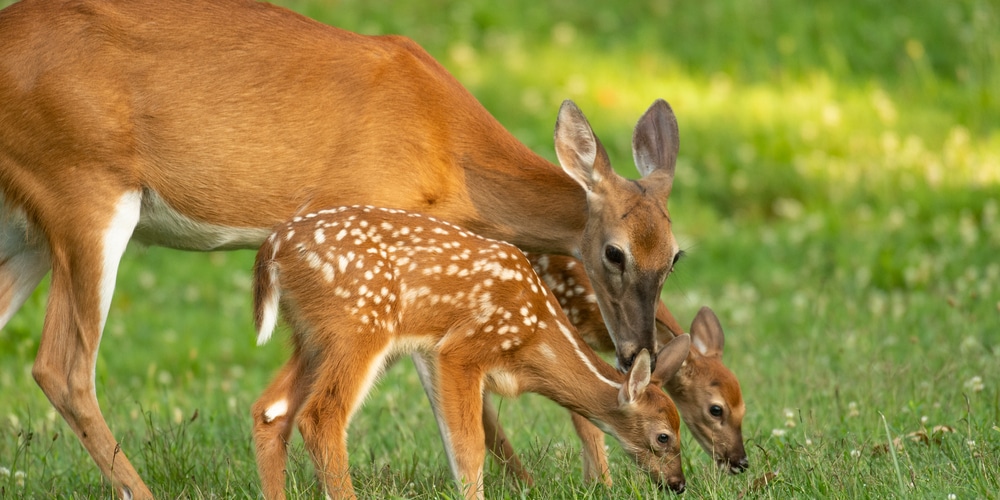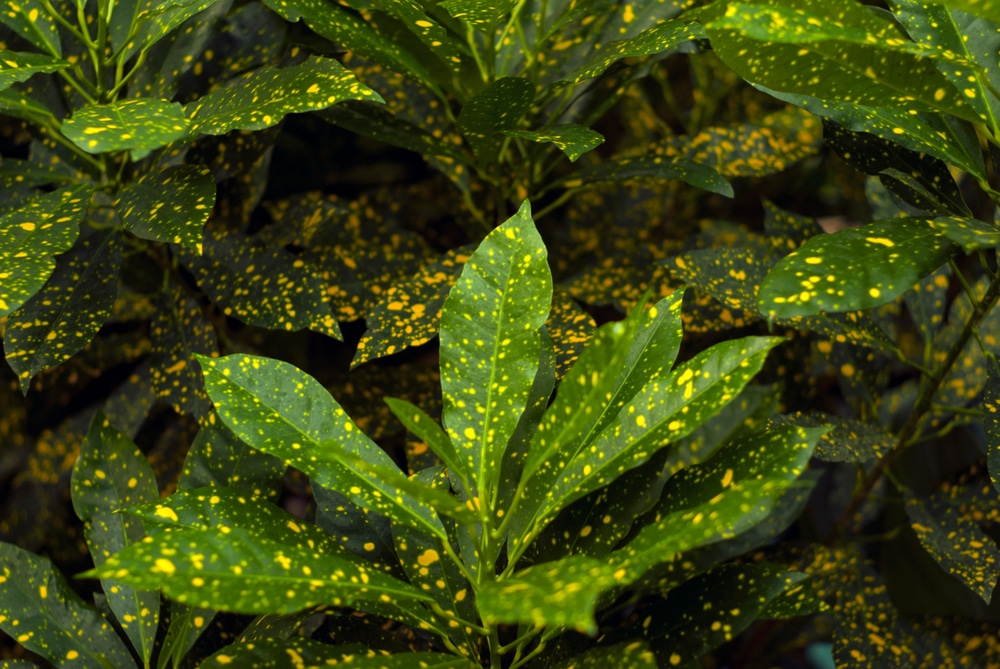Deer will eat almost anything if they are hungry enough, especially overcrowding plants and hedges. If you live in an area with a lot of deer activity, you may consider planting trees and bushes that deer find repulsive.
Many plants are vulnerable to consumption by predators, such as deer, rabbits, cows, buffalo, squirrels, and insects. As herbivores, deer like to feed on different types of foliage.
Crotons are dominant as landscaping plants along roadways, fountains, and wooded areas. Do deer eat croton plants? Since they have undesirable properties, crotons are not palatable to deer.
What Deer Eat
What plants do deer prefer? Deer do most of their browsing from October through February on narrow-leaf evergreens, hostas, juniper, daylilies, dogwood, and English Ivy.
Deer also enjoy feeding on fertilized plants. Plants with soft leaves, flowers, and stems are favorites of deer. Lettuce is an example of a plant with soft leaves.
What Deer Avoid
Deer avoid these types of plants:
- Toxic, such as daffodils, poppies, foxgloves, monkshood
- Fragrant, including herbs, lavenders, peonies, ornamental salvias, and honeysuckle
- Fuzzy, leathery, or thorny, such as Lamb’s ear, roses, and cotoneaster
- Bleeding hearts
- Boxwood varieties
- Astilbe
- Hawthorn varieties
- Chives
Croton Plants
Crotons (Codiaeum variegatum) are native to Asia and the Western Pacific and common in Central and South Florida. These plants can grow as shrubs up to 10 feet tall in the wild.
Croton can grow outside in pots in the full sun with partial shade in temperatures between 60 and 85 degrees F. Frost can destroy them if they stay in the cold for too long. Pots should be easy to transfer indoors during the winter.
Croton plants are easy to identify by their variegated foliage of several colors, such as yellow, orange, green, and red. The plants contain a sap that can stain clothing and irritate the skin if something damages them.
Crotons are easy to care for but do not make great houseplants for homes with kids. Like their cousins, the poinsettias, crotons are poisonous to children and pets.
Are crotons toxic to deer, and if not, do they eat them? An entire croton plant is poisonous to all kinds of animals. Depending on the type of crotons, deer might feed on them, but they may experience gastrointestinal upset and vomiting.
Pests
Crotons are appealing to many pests, but are they deer-resistant? Because of their toxic properties, most classes of crotons, such as bush, leatherwood, and grassland crotons are not favorable to deer.
Since deer favor plants that are soft and fresh, they tend to steer away from Crotons. Other types of croton plants include:
- Woolly Crotons
- Lindheimer’s Hogwort
- Encinilla
- Hierba Loca
- Prairie Tea
- One-seed Croton
- Doveweed
- DoveWeed
- Prairie Goat Weed
Other pests that feed on croton plants are mites, mealybugs, thrips, aphids, shore flies, and scales.
Summing Up
Deer will not likely feast on croton plants because of their toxic properties and unpleasant aromas. Crotons are poisonous to all animals and humans, so raising them indoors with children and pets is not ideal.
Ingesting croton plants may cause gastrointestinal upset and vomiting. Closely monitor kids and pets should you decide to have crotons.
If you live in an area where deer are in high population, and you want to keep them off of your property, croton plants may be the perfect landscaping option.

